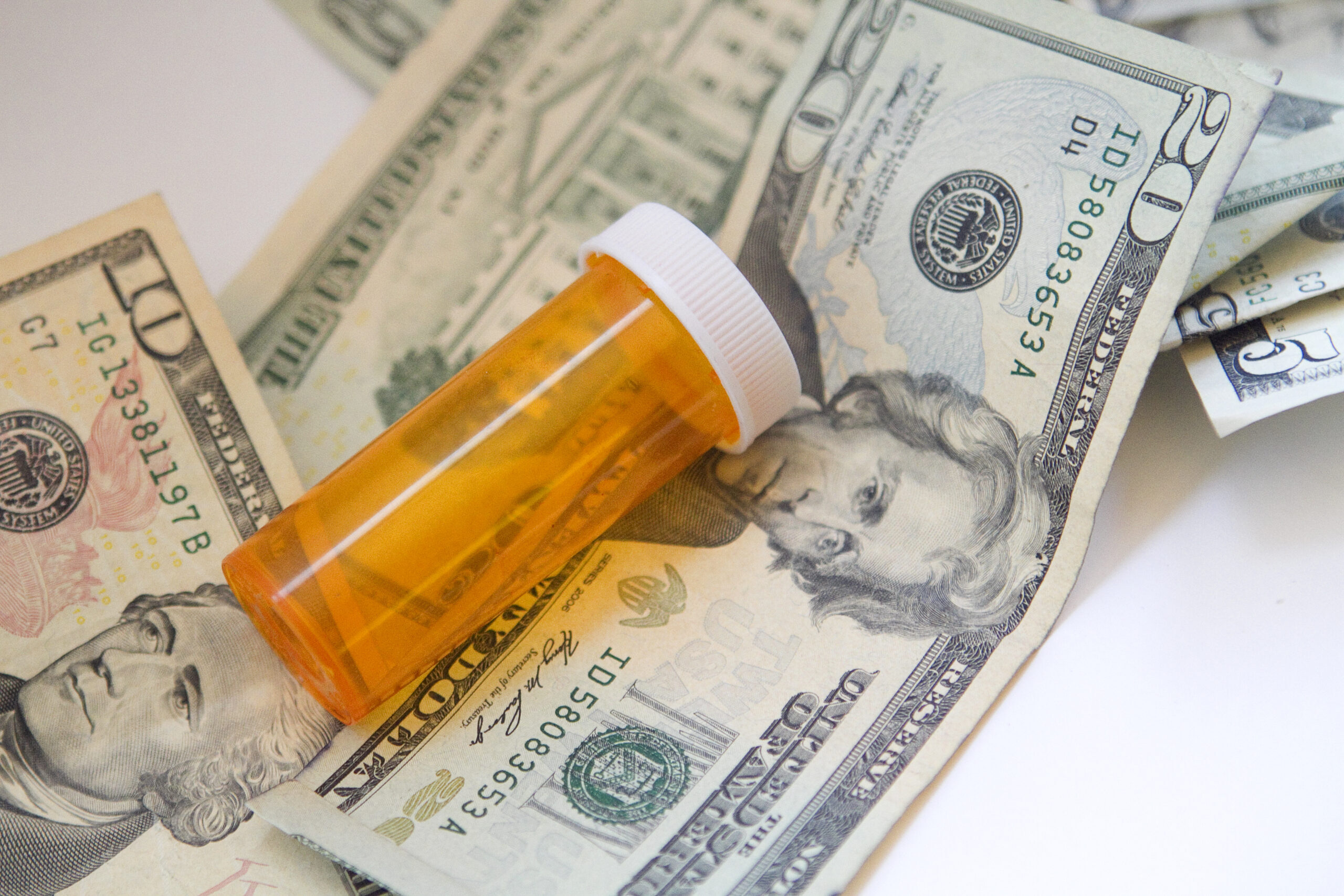© 2025 CSRXP- All Rights Reserved

BIG PHARMA EARNINGS WATCH: PFIZER, ABBVIE, SANOFI, ELI LILLY
Nov 4, 2022
Big Pharma Giants Beat Wall Street Expectations After Year of Price Increases, Pfizer’s Bourla Pressed on “Sheer Magnitude” of COVID-19 Vaccine Price Hike on Earnings Call
Big Pharma companies Pfizer, AbbVie, Sanofi, and Eli Lilly all topped Wall Street expectations in third quarter earnings reports this week — as all four companies continue to engage in egregious pricing and anti-competitive practices.
Pfizer CEO Albert Bourla, for instance, was pressed during the company’s earnings call by an analyst with Evercore ISI on the “sheer magnitude” of its recent COVID-19 vaccine price hike — that “is making a lot of investors ask questions around ESG implications, any political blowback, etc.”
Reuters reported in October that Pfizer plans to “as much as quadruple” the price of the company’s COVID-19 vaccine – to a price that represents a “10,000 percent markup over what experts have estimated it costs the vaccine makers to produce the shots” as payment for the vaccines shifts from the U.S. Government to the private market.
Get the facts on Big Pharma’s blockbuster third quarter earnings fueled by egregious pricing and anti-competitive practices:
Pfizer
- Pfizer beat Wall Street analysts’ earnings and revenue expectations for the third quarter.
- The pharmaceutical giant reported $22.6 billion in Q3 revenue and $8.6 billion in Q3 net income.
- The company now expects revenue to top $100 billion for the year.
- Pfizer raised its full-year sales guidance for its COVID-19 vaccine to $34 billion this year, up $2 billion from the company’s previous expectations.
AbbVie
- AbbVie reported Q3 earnings that beat Wall Street analysts’ forecasts, posting net revenues of $14.8 billion, a 5.4 percent increase.
- AbbVie’s earnings per share were up 2 percent year over year.
- AbbVie reported $7.65 billion in global net revenues from its immunology portfolio, a more than 16 percent
- AbbVie’s blockbuster arthritis drug Humira, the world’s top-selling drug since 2012, increased its sales 7.46 percent to $4.96 billion for the quarter.
- The company’s blockbuster psoriasis drug Skyrizi and arthritis drug Rinvoq brought in combined revenues of $2.09 billion.
Sanofi
- Sanofi topped Wall Street analysts’ expectations for Q3.
- The company reported $2.09 billion in net income and $12.58 billion in revenue.
- Sales of Sanofi’s bestselling asthma and eczema drug Dupixent beat Wall Street expectations, up 44 percent in Q3 to $2.3 billion.
- Over the last four quarters, the company has surpassed consensus EPS estimates four times.
Eli Lilly
- Eli Lilly topped Wall Street sales and revenue estimates, reporting $6.94 billion in Q3 revenue with U.S. sales increasing 11 percent.
- Eli Lilly posted a third-quarter profit of $1.45 billion, up from $1.11 billion in the same quarter last year.
- The pharmaceutical company’s total worldwide volume in Q3 increased 14 percent.
- The launch of diabetes drug Mounjaro led to $97.3 million in U.S. revenue, with 2023 revenue projections topping $1 billion – on track to become the company’s third best-selling drug.
These blockbuster earnings come after all four brand name drug makers continued to engage in price hikes this year. All four companies also have a history of engaging in egregious pricing practices and anti-competitive behavior.
Pfizer
- Pfizer has already hiked drug prices more than 100 times this year – including on more than 16 branded products this July.
- Pfizer increased the price of two of its best-selling drugs this year, cancer treatment Ibrance and rheumatoid arthritis drug Xeljanz – both by more than five percent.
- Pfizer executives recently discussed plans to quadruple the price of the company’s COVID-19 vaccine as coverage shifts to the commercial market.
AbbVie
- AbbVie launched another round of major price hikes to start the year, and increased prices on five more drugsthis summer.
- In January, AbbVie hiked the price of its blockbuster drug Humira, in addition to its autoimmune medicines Skyrizi and Rinvoq and cancer treatment Imbruvica – all by four percent.
- Humira’s price has almost doubledsince 2012, from about $19,000 to $38,000.
- AbbVie currently holds more than 130 patents on Humira in the United States, blocking competition for up to 39 years.
Sanofi
- Sanofi hiked prices on more than 40 prescription drugs in January 2022 – and engaged in an additional roundof price hikes in July.
- Sanofi hiked prices on multiple sclerosis drug Aubagio and rheumatoid arthritis drug Kevzara by 7 percentat the start of the year.
- Sanofi is one of three Big Pharma companies that dominate the insulin market and that worked in lockstep for decades to increase prices on the life-saving drug, through an egregious practice called “shadow pricing.”
Eli Lilly
- Eli Lilly started 2022 with more than a dozenprice hikes, including a five percent increase on top-selling diabetes drug Trulicity.
- This summer, Eli Lilly increased the price of its COVID-19 antibody treatment by an estimated 14 percent as coverage shifted to the commercial market from the U.S. government.
- In 2021, Eli Lilly was among the Big Pharma giants that announced new price hikes despite the ongoing unprecedented economic uncertainty facing millions of Americans grappling with COVID-19.
Read more on Q3 earnings from Big Pharma giant Johnson & Johnson HERE.
Read more on Q3 earnings from Merck, Bristol Myers Squibb, and Novartis HERE.
Stay tuned as we continue to monitor earnings calls from Big Pharma for the third quarter of the year.
Learn more about market-based solutions to hold Big Pharma accountable and lower prescription drug prices HERE.
